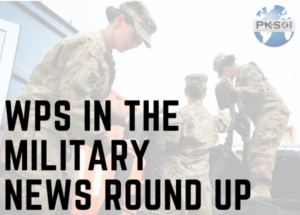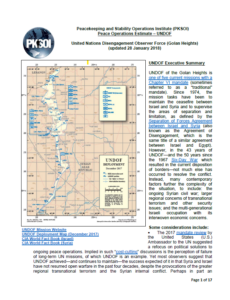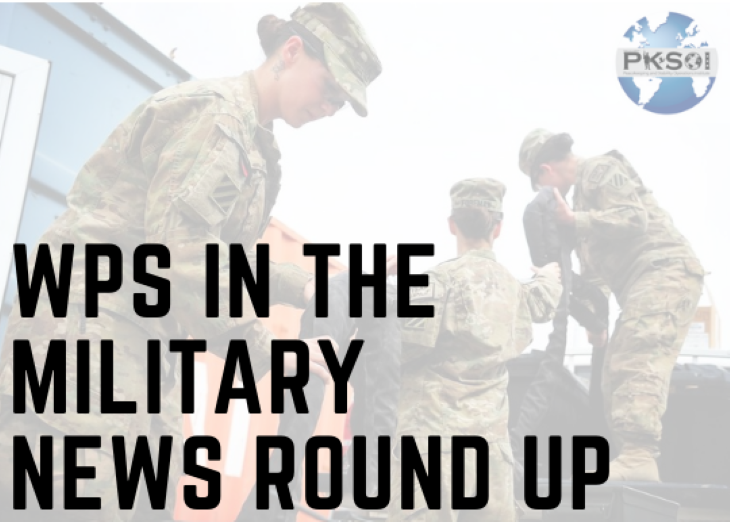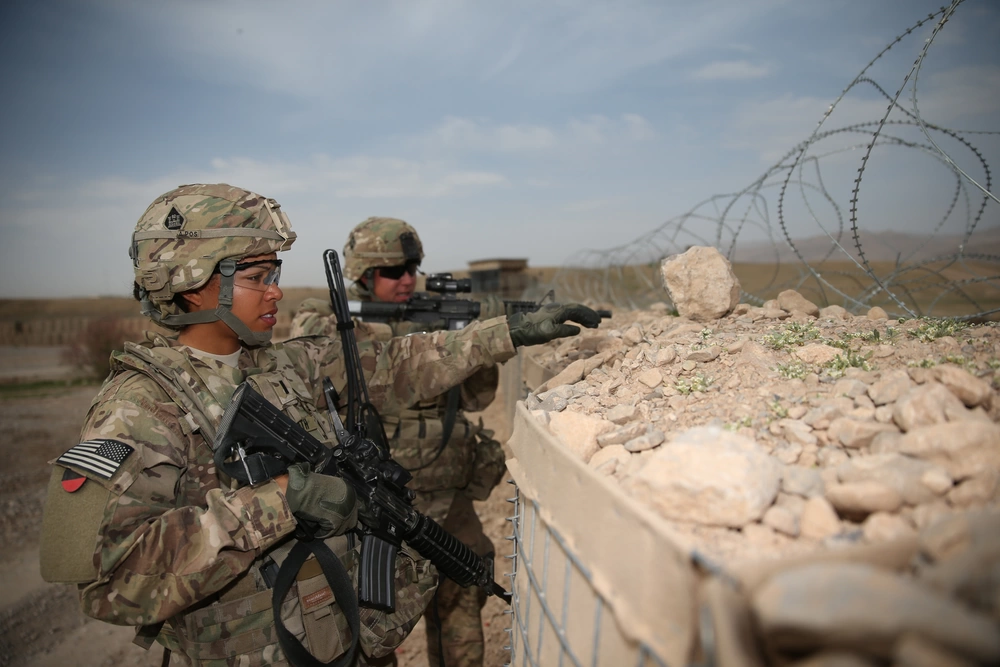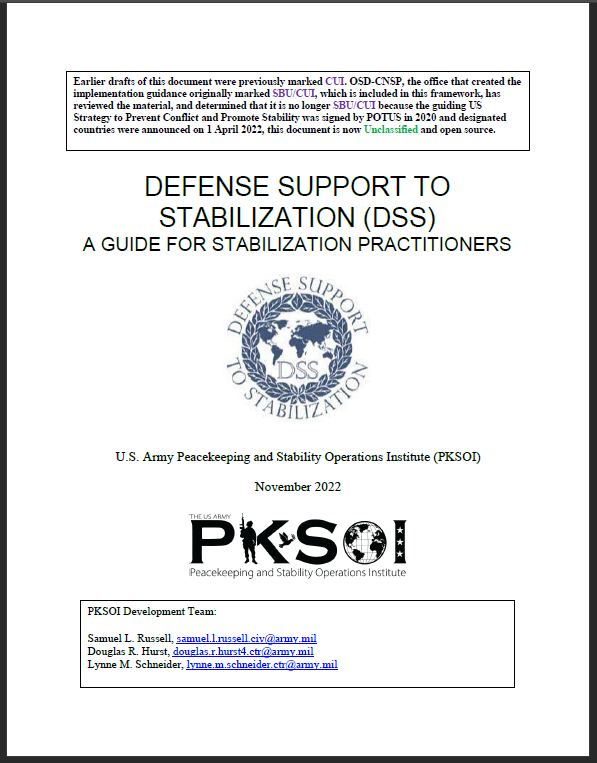This framework, Defense Support to Stabilization (DSS): A Guide for Stabilization Practitioners, was developed over the past two years by PKSOI in cooperation with the Office of the Secretary of Defense—Counternarcotics and Stabilization Policy (OSD-CNSP), and in coordination with a wide-ranging planning team involving members from across the joint force and the interagency.
Created in fulfillment of Task 1.1.5 of the December 2020 Secretary of Defense’s Irregular Warfare Implementation Plan, this framework serves as a reference guide that outlines how the Department of Defense, in support of U.S. Government (USG) strategy and interagency partners, supports USG stabilization efforts, missions, and activities.
As this is a DoD framework, it begins by highlighting DoD policy for DSS outlined in DoD Directive 3000.05 Stabilization, before providing an overview of US strategy including the 2022 National Security Strategy, 2018 Stabilization Assistance Review, 2022 National Defense Strategy, 2020 Strategy to Prevent Conflict and Promote Stability, and 2019 Strategy on Women, Peace, and Security. Following a review of other pertinent policy and doctrine, this framework outlines how the US Government in general, and DoD in particular, is organized to achieve US stabilization goals. The framework then details how the USG implements, and DoD supports, stabilization efforts.
Two appendixes detail the law governing Defense Support for Stabilization Activities (DSSA) and DoD implementation guidance for this important Security Cooperation program. Finally, there are twenty-three annexes of the U.S. strategies, policies, programs, and doctrine that comprise the USG and DoD framework for stabilization.
PKSOI, in coordination with OSD-CNSP, is committed to periodically updating this DSS Guide for Stabilization Practitioners as key strategies, policies, and doctrine are published.
To read or download this guide please click on the links below:
DSS-Guide-for-Stabilization-Practitioners-with-full-annexes-420-pages-8.7MB
